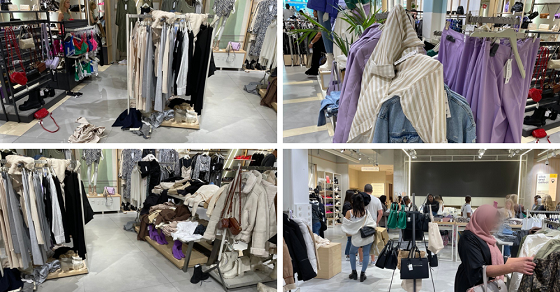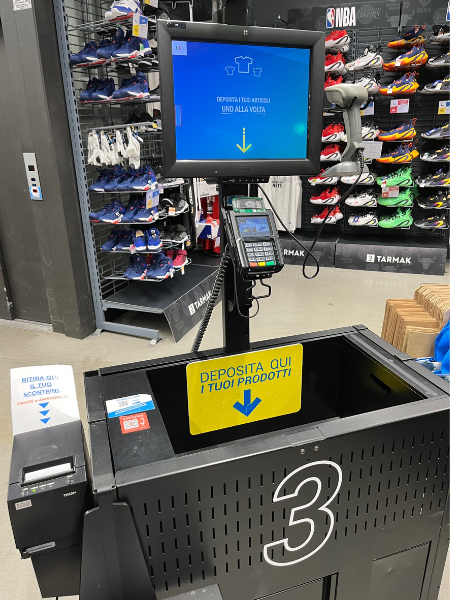Written by Guest Author

Guest authored by Sarah Hughes, Co-founder & Director at Datitude
Guest Blog by Sarah Hughes, Co-founder & Director at Datitude
What a difference a year makes! This time last year there was a renewed sense of optimism as we emerged from the pandemic tunnel. And yet it turned out to be another challenging year, particularly for retail.
Another challenging year, but digital acceleration continued. Quick commerce, social commerce, marketplaces, greenwashing of brands, a resurgence in physical retail and a rebalancing of ecommerce were key themes during the year.
And the forecast is still tough (the BRC forecasts sales value may rise by as little as 1% in the first half of the year, although by as much as 4.7% in the second) and the year will be unpredictable but there’s still many retailers and brands thriving in today’s environment.
So, what can we expect in 2023?
Being present everywhere also requires being integrated everywhere. Retailers will continue to expand their reach (from social, community, mobile and ecommerce sites to Personal Web Applications and physical stores) and extend services and adoption of tech in-store (click and collect, free returns in-store, virtual assistants and 3D mirrors, QR codes and interactive in-store displays, loyalty programmes and payment options including BNPL).
Whilst some press reports suggest there could be a decline in social media usage amidst a shunning of Big Tech, it’s pretty unlikely. Brand advertising spend on some of these channels may reduce in favour of retail media networks: these are expected to grow as large retailers look to leverage their digital platforms to generate advertising revenue from their valuable real-time first-party data insights.
Metaverse mania made headlines in 2022, most notably amongst the luxury fashion houses and big global brands looking to find new DTC opportunities and build loyalty amongst Gen Z and Alpha. But 2023 won’t be the year it becomes mainstream. Awareness, appeal and adoption remain low overall and squeezed tech and marketing budgets are likely to be directed towards excelling at the fundamentals – having the right product at the right price, in the right channel at the right time for the right customer.
Marketplaces enjoyed a surge in 2022 and this trend is likely to continue. We’re still seeing retailers planning to launch their own to broaden their product offering, reach and discovery.
More shops have shut down in the last five years (according to the Centre of Retail Research which found 17,145 shops in the UK closed for good in 2022), but stores are still fundamental to the omnichannel experience. Physical retail accounts for 75% of sales in the UK and new stores are opening all the time. Aldi, Asda, Flannels, Monsoon, Marks & Spencer, Poundland, Primark and Uniqlo are just a few who have already announced new stores this year. Expect to see more pureplay DTC brands follow Gymshark’s lead and launch on the high street too.
As ever, retailers need to offer compelling reasons for consumers to visit and then ensure the in-store experience doesn’t let them down. 
Blending physical and digital to get the basics right will be paramount: from visually appealing displays and signage, tidy shop floors, well-stocked shelves and accurate stock information, efficient queue management of sales, click and collect, returns and service points, to the availability of knowledgeable and empowered retail teams.
One innovation we hope will gain more traction is scan-less self-checkout – it uses RFID tags for quick and easy checkout, reduced queues, integrated loss prevention and automatically updated inventory.

Stock outs, delayed deliveries and poor post-purchase experiences just don’t cut it anymore. Consumers expect choice, availability and convenience which requires agile supply chain solutions. Whilst the pandemic highlighted the challenges and risks of just-in-time supply chains and off-shoring, agile retailers adapted by dual sourcing, near-shoring, and rolling out technology to optimise ecommerce and physical store capabilities like utilising stores as mini-fulfilment centres.
Retailers using technology to bring together inventory, logistics and consumer demand are in the strongest position to optimise their stock performance. Competitive pricing is one thing; unnecessary and damaging mark-downs because of poor supply chains kills businesses.
Good, intelligent data is an established growth driver and yet many businesses are still struggling to access their data and don’t have a single version of the truth. Technology is transforming how quickly and easily businesses can connect, integrate, and unify their data, and AI (artificial intelligence) and ML (machine learning) enable precise, real-time insights and better data driven decisions.
Laggards need to accelerate their data transformations as trading and customer data analytics is more important than ever.
Zero and first-party data is key to nurturing relationships, offering a more personalised experience through relevant and tailored marketing campaigns, and increasing loyalty. We call this digital trust. It’s a must for every retailer given the impact of channel diversification on data ownership, and the increasing, and eventual, loss of third-party cookies. Audience segmentation and targeted, timely messaging will continue to play an important part.
Greenwashing took centre stage in 2022. Despite the economic downturn, actions and trust in ESG are becoming increasingly important. Aside from any regulatory requirements, it makes commercial sense – there’s growing evidence businesses with solid ESG credentials tend to perform better than those without, and consumers are increasingly demanding a commitment to ESG.
More retailers are partnering with circular economy specialists to support their sustainability efforts. Rental and resale platforms and repair services are increasingly commonplace. Less so is traceability and transparency and evidence to support sustainability claims. In this respect, expect to see more use of digital product passports and a greater demand for data modelling and analytics solutions to support complex measurement and reporting requirements.
We’re impressed with the Clarins’ initiative – it’s innovative traceability platform, “T.R.U.S.T”, uses blockchain technology. Consumers can access the interface online or through QR codes on packaging to trace “from field to you” on the entire preparation and manufacturing process of each skin care product.
The good news is the retail tech eco system is becoming increasingly sophisticated. Cloud-native software and platform-as-a-service solutions are superb for businesses looking to benefit from advanced enterprise technologies and associated expertise with ease and convenience. This, coupled with the digital skills gaps and resource shortages, may mean it’s the year of buy rather than build.
As consumer spending is squeezed, acquiring new customers will be costly and more difficult. Businesses will focus on existing customers and growth through customer retention; adopting technology to truly understand their consumer, meeting them wherever they are and providing a seamlessly integrated, omnichannel commerce experience.
The year has started, and the pressure is on. Don’t get left behind and have a great year!
Got you thinking about retail trends for 2023? Read more on our blog here.
Written by Guest Author

Guest authored by Sarah Hughes, Co-founder & Director at Datitude
Share this post
SubscribeWe think you might like these posts too
© 2025 Retail Assist Limited. The Hub Floor 5A, 40 Friar Lane, Nottingham, NG1 6DQ.
Registered in England. Company number: 03790674
info@retail-assist.com | +44 (0)115 904 2777
Website Designed & Built by we are CODA